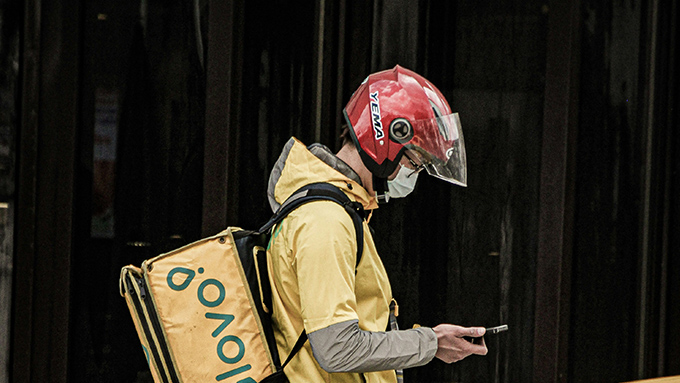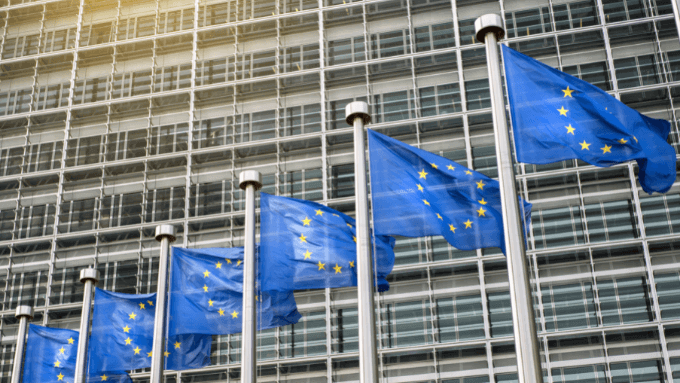On-Site Inspections in Light of the Recent Decisions of the Competition Authority
Introduction
When the past decisions and the recent decisions of the Competition Board (“Board”) are examined, a significant increase can be observed in the number of decisions where the Board found hindrance or obstruction of on-site inspections. This situation shows that the Competition Authority’s (“Authority”) on-site inspection approach has been changed significantly.
On-site inspections are carried out by case handlers of the Authority at the premises of the inspected undertakings, in the nature of a raid and hence without any warning. Undertakings are not informed about inspections beforehand. If the Board finds that certain behavior of the employees of the inspected undertaking qualifies as hindrance or obstruction of the on-site inspection, the relevant undertaking will be subjected to an administrative monetary fine. Thus, it is crucial to analyze the types of behavior that are found to be hindering or obstructing on-site inspections in light of the Board decisions, and avoid such behavior during these inspections.
The Board’s On-Site Inspection Authority and its Legal Foundation
The Board’s authority to conduct on-site inspection arises from Article 15 of the Law on the Protection of Competition numbered 4054 (“Law No. 4054”). The Board conducts on-site inspections through case handlers. The case handlers can examine all kinds of data and documents, obtain copies and physical samples of such, and demand oral or written explanations within the scope of their authority.
In the event that an on-site inspection is hindered or likely to be hindered, it will be performed by order of a magistrate’s court judge. However, the fact that an on-site inspection has been performed pursuant to a magistrate’s court judge’s decision will not prevent the application of an administrative fine.
Fines for hindering or complicating on-site inspections are regulated by Article 16 of Law No. 4054. As per the relevant article, the administrative monetary fine shall be applied by 0,05% of the annual gross revenue of the relevant undertaking in the financial year preceding the decision. If such cannot be calculated, the undertaking will be fined 0,05% of the annual gross revenue generated by the end of the financial year closest to the date of the decision to be determined by the Board.
Due to increasing digitalization, the Authority published Guidelines on the Examination of Digital Data During On-Site Inspections (“Guidelines”). The Guidelines authorize case handlers to investigate IT systems that carry information about the inspected undertaking, such as mobile devices, back-up records and cloud services. They also state that case handlers can utilize forensic IT hardware and software during on-site inspections. Forensic IT hardware and software primarily allow the case handlers to restore deleted data.
During on-site inspections, it is the duty of the inspected undertaking to prevent any interference with stored data and to protect the integrity of the data. The employees of the inspected undertakings are expected to provide full and active assistance to the case handlers. For instance, providing system administrator privileges, enabling remote access to the e-mail accounts of the employees, isolating computers and servers from the network, limiting the access of users to their corporate accounts, and restoring backed-up corporate data are among the obligations of the employees of the undertakings.
Recent Decisions of the Board on Hindrance or Obstruction of On-Site Inspections
Recently, a significant increase in the number of decisions where the Board found hindrance or obstruction of the on-site inspections can be observed. The fact that deleted data can be restored with the utilization of forensic IT hardware and software is one reason for that. Another reason is that case handlers inspect the WhatsApp chat history of the employees of the inspected undertakings. In this article, the Unmaş[1], ETİ[2] and Procter and Gamble (“P&G”)[3] decisions selected among the recent decisions of the Board will be handled.
The Unmaş Decision
In the Unmaş decision of the Board, the investigated undertaking was imposed an administrative monetary fine because an employee deleted part of their WhatsApp chat history. Pursuant to the decision, the case handlers reached the content of the deleted chats with the use of forensic IT, and they found that the deleted data was related to the undertaking. In line with this, they determined that the employee deleted chats with the aim to hinder the on-site inspection.[4]
The Unmaş decision is important as an undertaking was fined due to the deletion of an employee’s WhatsApp chat history. In its decision, the Board stated that the case handlers were not subjected to any hindrance in obtaining the organization structure of the undertaking, bringing the employees that were not present at the beginning of the investigation to the premises, providing remote access to certain data, and handling of the mobile devices.[5] Yet, an administrative monetary fine was imposed on the undertaking.
As the Unmaş decision demonstrates, the fact that deleted data can be restored with the use of forensic IT will not prevent the Board from finding that its deletion constitutes hindrance or obstruction of an on-site inspection. As per the decision, “the contrary would be rewarding the cases where data is deleted and could not be restored with the use of forensic IT.”[6]
The ETİ Decision
Unlike the Unmaş decision, in the ETİ decision of the Board, in addition to the deletion of data related to the undertaking, the fact that the inspection was delayed by the employees of the undertaking due to insufficient information provided to the case handlers, was cited as a separate reason for a fine.
In the ETİ decision, the Board determined that the inspection was delayed for an hour. The reason for such delay was examined by the case handlers in light of the information received from the security personnel and the entrance and exit records of the undertaking. Hence, it was determined that some employees of the undertaking were hidden in the premises even though they were present at the time the case handlers entered the premises.[7]
Moreover, it was emphasized that the employees who were working remotely were told not to delete any document or data with a general announcement.[8] Nevertheless, log records showed that certain employees did delete relevant data.
As a consequence, the Board held that potential evidence and findings of the case handlers were complicated and the on-site inspection was hindered.[9]
P&G Decision
As in the aforementioned decisions, the deletion of data related to the undertaking was a fact of the P&G decision. Yet, this decision can be separated from those because here, the employee stated that they deleted private chats and the undertaking raised the privacy defense.
A suspicion arose in the eyes of the case handlers that the employee deleted a chat with another employee of the undertaking. Upon that, the relevant mobile device was connected to forensic IT hardware. As a result of the inspection, the case handlers observed that the employee exited group chats which may be evaluated as being irrelevant from work, titled “The team,” “I’m not done yet,” “Vicks Sales,” “Super Husbands,” “Death-S. G.”[10]
The Board stated that as the group chats were permanently destroyed, they could not be informed about the content of the group chats. However, the Board decided that there was hindrance or obstruction of the on-site inspection and imposed a fine on the undertaking, with the reasoning that other employees were participants in the inspected group chats.[11]
Conclusion
Together with the decisions handled in this article, the Board published eight decisions on this topic in November 2021 alone. When the recent decisions of the Board on this topic are examined, it is significant that they have one thing in common: deletion of e-mail and WhatsApp correspondences. Due to the sensitivity of the Board about the on-site inspection procedure, it is crucial to be aware of and to avoid such behaviors that may constitute hindrance or obstruction of on-site inspections.
[1] Decision of the Board numbered 21-26/327-152 and dated 20.05.2021 (“Unmaş Decision”), https://www.rekabet.gov.tr/Karar?kararId=78f5d1cc-302a-4465-950d-f30d73da29ae
[2] Decision of the Board numbered 21-24/278-123 and dated 29.04.2021 (“ETİ Decision”), https://www.rekabet.gov.tr/Karar?kararId=5a6a8baf-31f0-44cf-96c7-278940729ad9
[3] Decision of the Board numbered 21-34/452-227 and dated 08.07.2021 (“P&G Decision”), https://www.rekabet.gov.tr/Karar?kararId=9f543d53-8721-4e55-9296-91e8b2525f4c
[4] Unmaş Decision, par. 15
[5] Unmaş Decision, par. 12
[6] Unmaş Decision, par. 16
[7] ETİ Decision, par. 14
[8] ETİ Decision, par. 16
[9] ETİ Decision, par. 26
[10] P&G Decision, par. 9
[11] P&G Decision, par. 21
All rights of this article are reserved. This article may not be used, reproduced, copied, published, distributed, or otherwise disseminated without quotation or Erdem & Erdem Law Firm's written consent. Any content created without citing the resource or Erdem & Erdem Law Firm’s written consent is regularly tracked, and legal action will be taken in case of violation.
Other Contents

Mergers and acquisitions are among the types of transactions that are subject to intensive scrutiny by competition authorities. As a rule, competition authorities only subject transactions that exceed certain turnover thresholds and result in a change of control to merger…

The U.S. District Court for the District of Columbia (“Court”) issued its memorandum opinion (Memorandum Opinion) on November 18, 2025, in the antitrust case (“Case”) between the Federal Trade Commission (“FTC”) and Meta Platforms Inc. (“Meta”). The FTC alleges that Meta monopolized the market…

No-poach agreements, which have become one of the most prominent concepts in global competition law in recent years, are defined in the Glossary of Competition Terms as “agreements, whether direct or indirect, whereby one undertaking agrees not to make job offers to, or hire, the employees of another...

The Competition Board (“Board”) has broad powers to request information from undertakings. The legal basis for this authority is provided by Article 14 of Law No. 4054 on the Protection of Competition (“Law No. 4054”). Under this provision, the Board may request any information it deems necessary from public...

Competition authorities around the world have increasingly focused on labor market infringements under competition law, issuing new regulations and guidance recently. Notable examples include the U.S. Department of Justice and Federal Trade Commission’s joint guidance, the Japanese Fair Trade Commission’s...

Chapter 8 of the General Data Protection Regulation (“GDPR”) sets out the legal remedies available to data subjects in the event of a breach of their rights under the GDPR. Accordingly, each data subject has a right to lodge a complaint with the supervisory authority of the Member State in which they reside, work...

Mergers and acquisitions play a critical role in shaping the competitive structure of the market. Although such transactions can lead to positive outcomes such as the provision of products and services at lower prices, the development of new products and technologies, and improvements in quality, they may also...

Technology and the opportunities it brings undoubtedly play a key role in strengthening the competitiveness of market players. In this context, pricing algorithms that enable undertakings to monitor publicly available prices and optimize their own pricing strategies have become widely used, especially by digital platforms...

The Regulation on Fines to Apply in Cases of Agreements, Concerted Practices and Decisions Restricting Competition, and Abuse of Dominant Position (“Former Regulation on Fines”), which entered into force upon its publication in the Official Gazette dated February 15, 2009 and numbered 27142, was...

In the past years, the Turkish Competition Board (“Board”) has closely monitored the activities of undertakings operating in the retail sector. As a result of the Board’s record of administrative fines, horizontal type of violations in the retail sector have been highly publicized. Vertical violations such as resale price...

In recent years, numerous automobile manufacturers have announced their goals to reduce carbon emissions, with many brands setting net-zero carbon targets spanning from production processes to the lifecycle of their vehicles. While ongoing debates persist regarding the significantly higher carbon footprint of...

Under Article 15 of Law No. 4054 on the Protection of Competition (“Law No. 4054”), the Competition Board (“Board”) may conduct on-site inspections at the undertakings’ premises when it deems necessary in fulfilling the duties assigned to it. During the on-site inspection, the Board is authorized to examine all...

Agreements and information exchanges between undertakings in labor markets have recently been examined in various preliminary investigations and investigations initiated by the Turkish Competition Authority (“Authority”). Following the investigations in which some undertakings were subject to...

The Turkish Competition Board’s (Board) decision regarding the acquisition of the international road transport business line of Ekol Lojistik AŞ (Ekol) by DFDS A/S (DFDS) has been one of the most prominent transactions on the competition law agenda recently...

The Competition Board (“Board”) has broad powers to request information from undertakings. The Board’s authority to request information arises from Article 14 of the Law No. 4054 on the Protection of Competition (“Law No. 4054”). Under the relevant provision, the Board may request any information it deems...

Doğuş Otomotiv Servis ve Ticaret A.Ş. (Doğuş) applied to the Turkish Competition Authority for an exemption for the practice of recommending basic wages to be applied to sales and after-sales service employees of its authorized dealers and distributors...

Access to Instagram was blocked ex officio by the Information and Communication Technologies Authority (ICTA) as of 2.08.2024. Under Article 8 of Law No. 5651 on the Regulation of Publications on the Internet and Combating Crimes Committed Through These Publications, ICTA can issue an ex officio access...

It is well known that agreements between employer undertakings with regards to their employees, such as wage-fixing and non-poaching agreements, along with competitively sensitive information exchanges have been under the scrutiny of competition authorities all over the world, including the Turkish Competition...

Automotive is one of the sectors in which the world’s most significant investments are made. The Competition Board (“Board”) has been closely interested in the automotive sector over the years and has conducted various examinations and studies in this field...

Competition authorities around the world continue unabated to investigate competition concerns arising from data collection and processing activities of digital platforms and impose severe sanctions as a result...





The startup ecosystem in Turkey has experienced notable growth in recent years. In the last quarter of 2023, 81 startups secured a combined investment of around 60 million dollars. While the number of investments remained consistent when comparing the third quarter periods of 2022-2023, there was a decrease...

Hub and Spoke cartel is a type of violation that is not clearly defined and regulated under Law No. 4054 on the Protection of Competition (“Law No. 4054”). Decisional practices of foreign competition authorities, particularly the UK Competition and Markets Authority’s decisions (“CMA”), are instructive concerning...

The Competition Board ("Board") made an addition to its line of decisions on resale price maintenance with its decision on Sunny Elektronik Sanayi ve Ticaret A.Ş. ("Sunny") . In its decision, the Board thoroughly examined the allegations regarding Sunny's involvement in maintaining resale prices and restricting...

It is observed that the Competition Authority (“Authority”) has recently scrutinized various industries such as fast-moving consumer goods, labor market, pharmaceuticals, and cement. When the reasoned decisions of the Competition Board (“Board”) published in October are examined, it can be seen that the...

Jules Verne says, “Everything on earth has a limited lifespan, nothing that will exist forever can be created by human hands”. Perhaps change is the only constant concept in all our lives. Despite two major world wars and countless periods of crisis, humanity has been undergoing a great change and...

At the meeting of the Fédération Internationale de Football Association (“FIFA”) held on 16 December 2022, the FIFA Council approved the FIFA Football Agents Regulations (“FFAR”). In the FFAR, various amendments have been made, such as the introduction of a maximum service fee limit that football agents are...

Resale Price Maintenance (RPM) is still considered a hardcore restriction under the recently revised Vertical Block Exemption Regulation (VBER), which means that it cannot benefit from a statutory exemption under Article 101(1) TFEU, unlike certain other types of vertical agreements. However, it has been debated...

In competition law, it is important to accurately determine the concept of undertaking, especially in terms of mergers and acquisitions. Therefore, the concept of economic entity aims to reveal the economic units covered by the undertakings. The relationship between the concept of economic entity and family ties comes...

In these days when the Competition Board (“Board”) frequently imposes administrative fines for preventing on-site inspections and both the Competition Authority (“Authority”) and undertakings take legal and technical measures regarding on-site inspections, a striking development has occurred. In its decision...

Online advertising has become an important source for businesses for promoting products and services and meeting consumers, as a result of the rapid development of information technologies and increase in the use of internet. Delivering targeted messages to consumers at the right time through the digital...

Selective distribution systems refer to a type of distribution system in which suppliers commit to selling the contracted goods or services directly or indirectly to distributors selected based on specified criteria, while the distributors commit not to sell the said goods or services to unauthorized...

Fast-moving consumer goods is undoubtedly one of the sectors that the Competition Authority has been working most intensively since the COVID 19 pandemic. Among the most important developments of this period was the Sector Inquiry initiated on Fast Moving Consumer Goods (“FMCG”) Retailing...

In the decision of the Constitutional Court ("Constitutional Court" or "Court") dated 09.11.2022, numbered 2020/67 E. 2022/139 K. (the "Decision"), the annulment of certain articles of the Law Amending the Law on the Protection of Competition No. 4054 ("Law No. 7246") was requested...

In Turkish competition law, certain types of mergers and acquisitions are subject to Turkish Competition Board’s (“Board”) approval in order to gain legal validity. Pursuant to Article 7 of the Law No. 4054 on the Protection of Competition (“Law No. 4054”), the Board is competent to define mergers and acquisitions...

Recently, the Competition Board (the Board) had imposed administrative fines on banks and financial institutions for failing to respond to the request for information within the scope of a preliminary investigation.[i] The request for information that lays the groundwork for the administrative fine imposed by...

Amazon, a world-famous company, is an e-commerce company that operates the world’s largest online shopping platform. In the backstage, Amazon is a data-driven company whose retail decisions are mostly driven by automated systems, fueled by the relevant market data. That being said, Amazon has a dual...

The right to make on-site inspections is one of the Competition Board’s (“Board”) most important tools for revealing whether Law No. 4054 on the Protection of Competition (“Law No. 4054”) has been violated. The effective use of this authority is quite important in terms of obtaining fruitful results from...

“Harese” is an interesting Arabic word. There is a thorn that camels love very much in the desert. The camel eats the thorn with great greed. So much so that, its mouth bleeds as it eats, but it doesn't stop eating. The taste of the thorn is mixed with the salty taste of its own blood. This mixed taste drives the camel...

Turkey’s leading pay television service provider, Krea İçerik Hizmetleri ve Prodüksiyon A.Ş. (“Digiturk”), is frequently the subject of complaints made to the Competition Authority (“Authority”). In fact, the Competition Board (“Board”) issues a new decision about Digiturk almost every year. In these decisions...

The French Competition Authority (Autorité de la Concurrence), within the scope of the competition law proceeding initiated upon the complaint of Criteo SA (“Criteo”), accepted the commitments proposed by Meta Platforms Inc., Meta Platforms Ireland Ltd., and Facebook France...

While the scope of Competition Board’s (“Board”) power to conduct on-site inspections has increased with the introduction of Guidelines on Examination of Digital Data during On-site Inspections (“Guidelines”), nowadays the amount of monetary fines imposed on undertakings continue to...

The hub and spoke cartel, which is a relatively new type of violation in terms of Turkish competition law, is defined as the indirect exchange of information between two independent undertakings which are horizontal competitors on the supplier or retailer level, through another undertaking...

The settlement mechanism has only recently been introduced to Turkish competition law practice. It entered into force with the amendment made to the Law on the Protection of Competition (“Law”) numbered 4054 on 16.06.2020, and has been in effect for less than two years. In this relatively...

Due to their increasing share in the economy and rapid growth rate, e-marketplace platforms have come under the increasing scrutiny of the Turkish Competition Authority (“Authority”) as well as many competition authorities around the world...

Pursuant to the Amendment Communiqué Concerning the Mergers and Acquisitions Requiring the Competition Board’s Approval (“Amending Communiqué”) published in the Official Gazette dated March 4th, 2022 and numbered 31768, certain amendments have been introduced...

The Competition Board (“Board”) has recently published a reasoned decision in which it evaluated BSH Ev Aletleri Sanayi ve Ticaret A.Ş.’s (“BSH”) request for negative clearance or exemption with regard to its practice of prohibiting authorized dealers from making sales through online marketplaces...

Shahmaran, a Mesopotamian myth, is believed to take place in Tarsus. According to the myth, the shah of snakes is the immortal and omniscient "Shahmaran." Shahmaran is described as a beautiful woman living in her cave with her snakes...


During the COVID-19 pandemic, competitive concerns about the pricing behavior of chain markets, manufacturers, and wholesalers engaged in the retail trade of food and cleaning supplies led to an investigation by...

The European Commission began investigating the collusive behavior of Credit Suisse, UBS, Barclays, RBS, and HSBC in the Foreign Exchange (forex) spot trading market in 2019. With the recent press release dated 02.12.2021, the Commission announced that the case is now closed...


Digitalization, in particular, necessitates the rewriting of competition law rules. Competition law is at the center all questions regarding e-commerce and digital platforms. The aforementioned platforms, which have become prominent due to innovations in...

















































